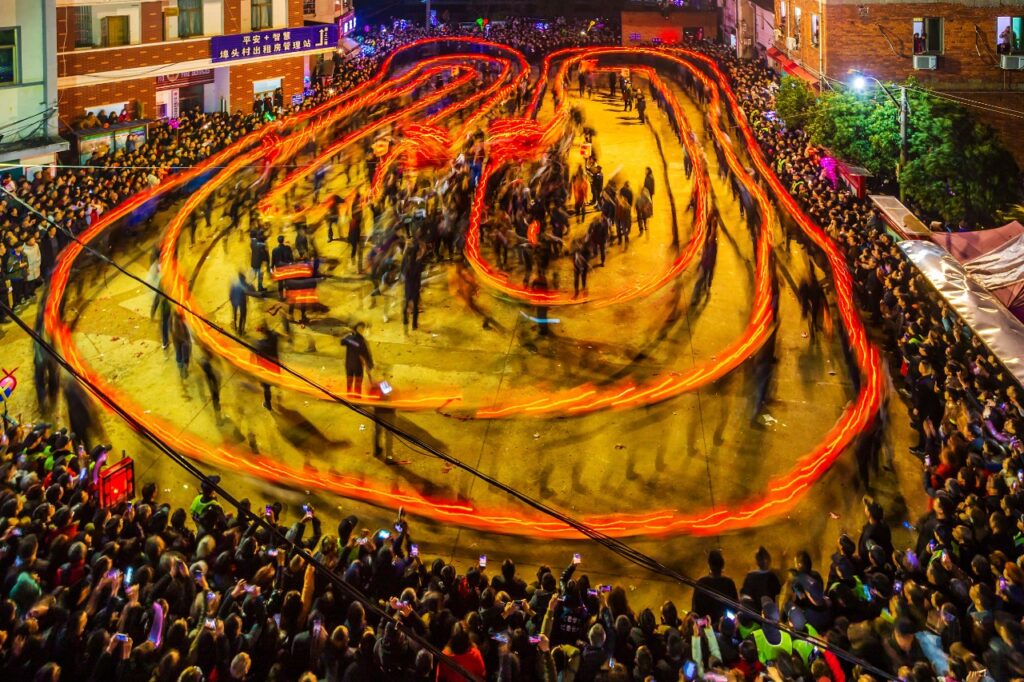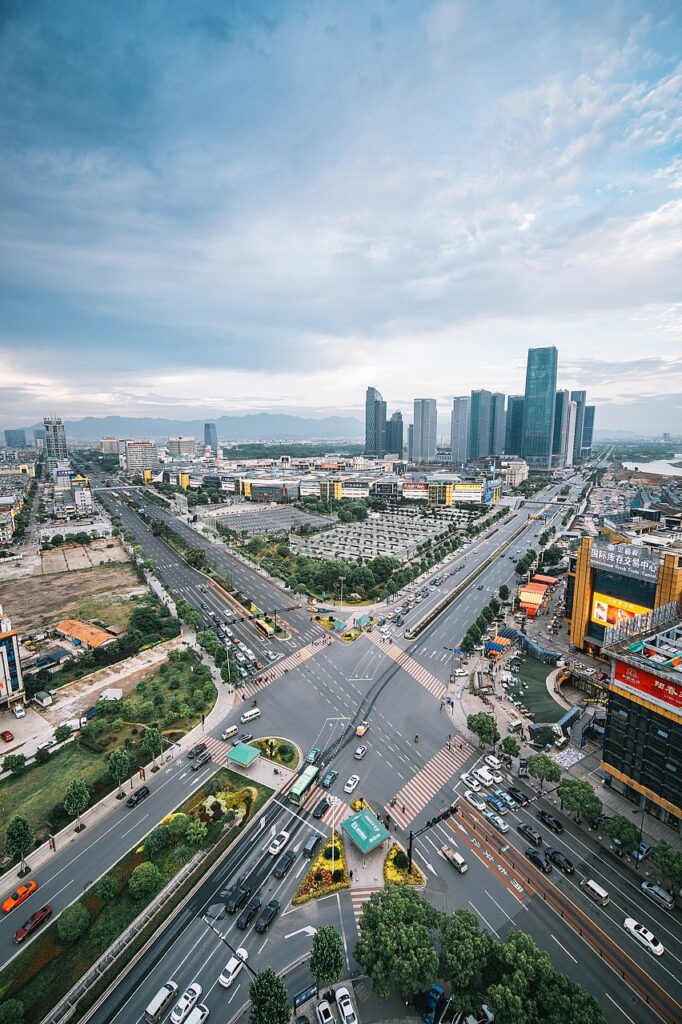
Have you received the express delivery from Yiwu, Zhejiang Province in this year’s Double 11 Shopping Feast?
Most kids in Yiwu would have the experience of being blamed by their elders when bringing “local specialties” back home to their relatives and friends from the scenic spot:
“Are you out of your mind? All these are wholesaled from Yiwu market! Why not buy it at home?” Indeed, there is an “ancient street” in almost every scene spot selling handicrafts all wholesaled from Yiwu, where is like a sacred place for the artistic young. And in almost every city in China, you can find a market with a sign of “Yiwu small commodities”, displaying daily necessities with which their prices are comparable to Taobao.
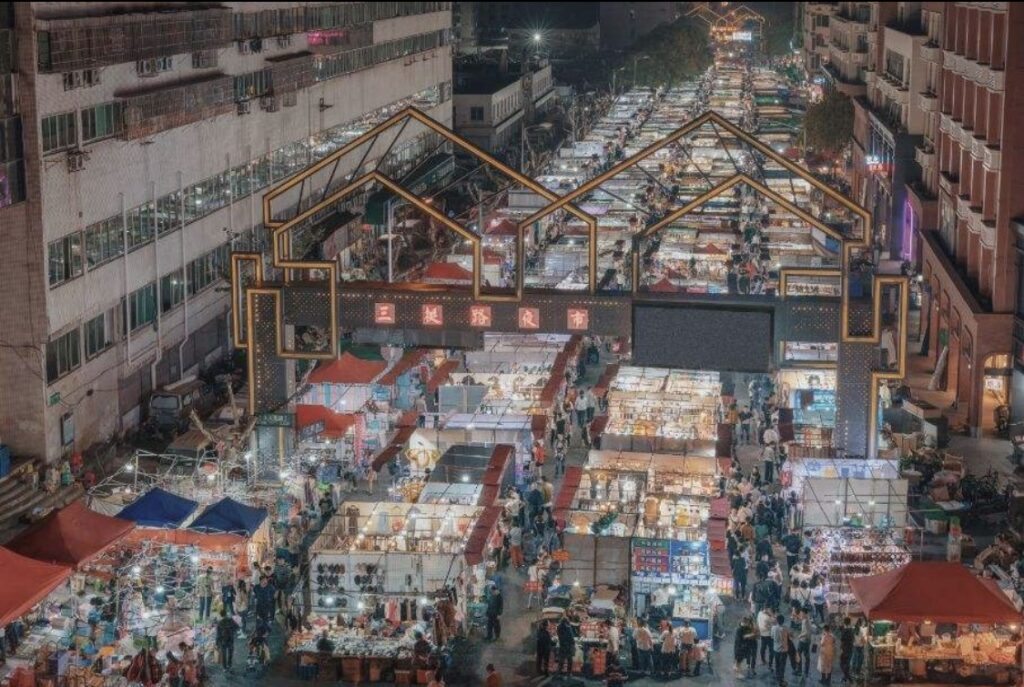
As the largest small commodity distribution center in the world, in Yiwu, every day seems to be a “Double 11” shopping feast. Every second, tens of thousands of goods are sent from Yiwu to all over the world. It is not a city on the coast, but a city with the only inland port in Zhejiang province—-Yiwu Port.
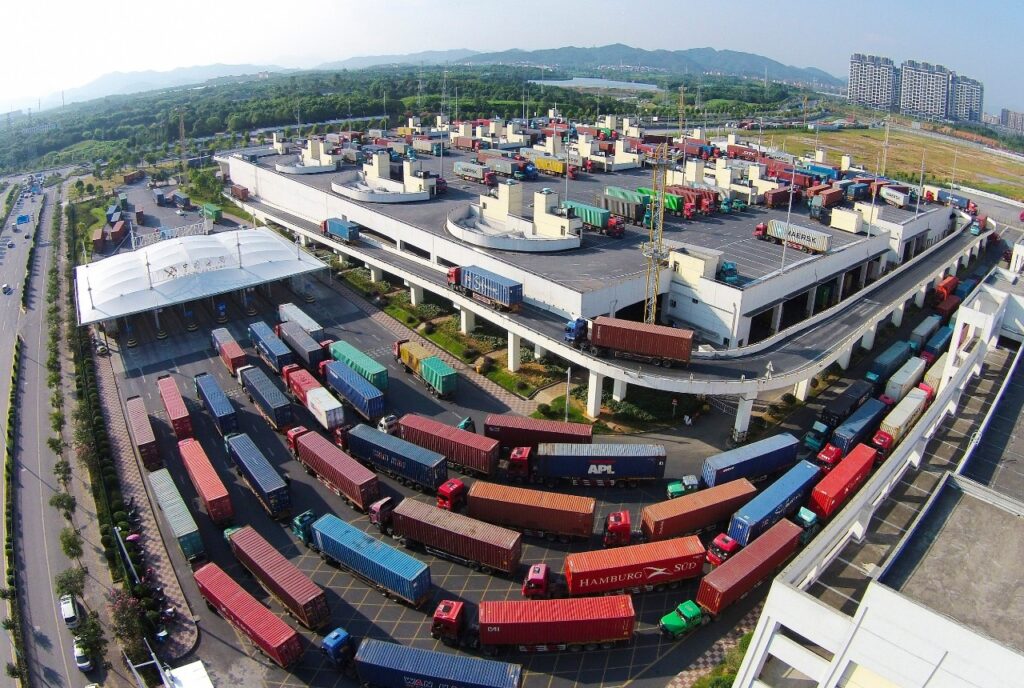
Madrid-Yiwu Train travels thousands of miles and goes straight to Europe. In the “Top 100 Counties in China” list in 2019, Yiwu ranks top five, with its per capita income repeatedly won the top…
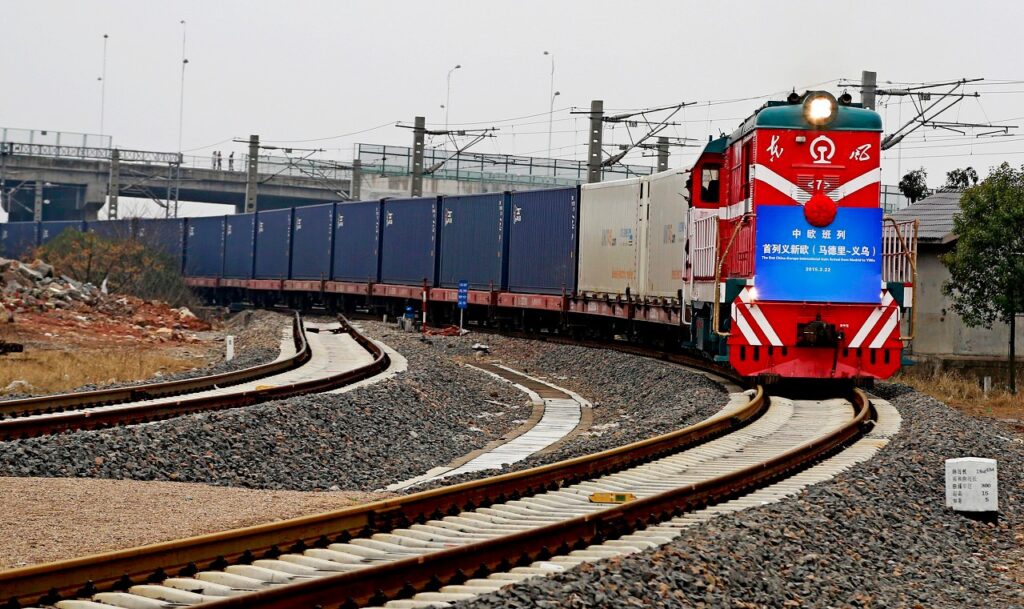
However, businessmen in Yiwu will only tell you that they come from a “small county town on the 18th line” or “in a ravine ditch”, while pointing at their luxury cars on the street and raising their newly bought watch.
So how did Yiwu people get rich?
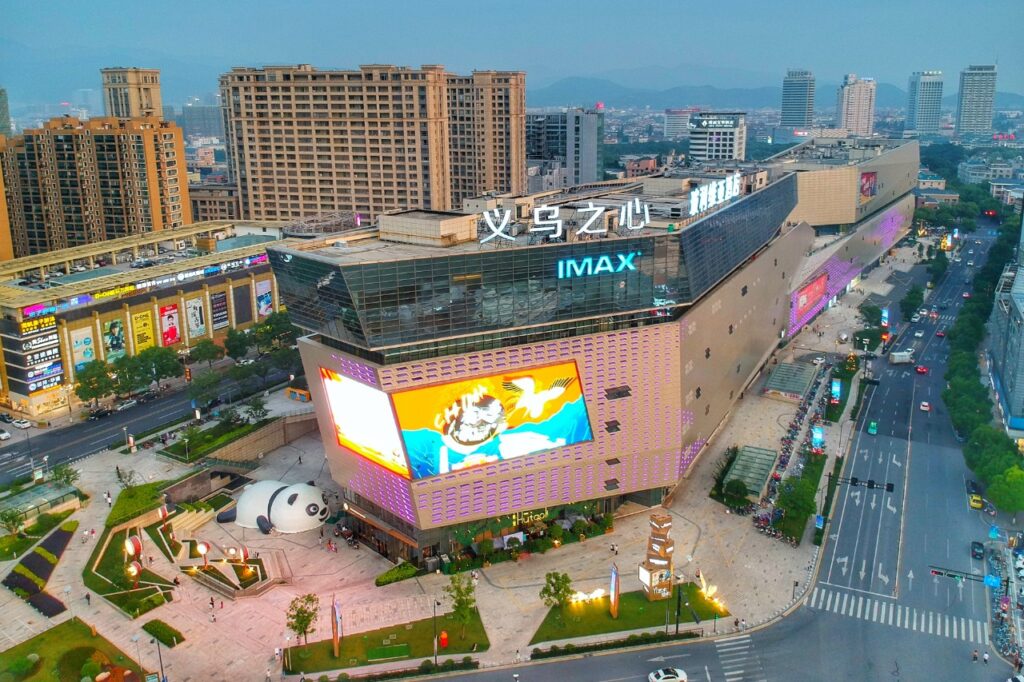

Yiwu, the heart of Zhejiang, is a different southern city along the Yangtze River.
Yiwu is a “non-typical” southern town. From the map, Yiwu is right in the geometric center of Zhejiang Province’s territory, located on the east end of the Jinyu Basin. Here, east, south, and north parts of Yiwu are surrounded by mountains. The mother river of Yiwu—the Yiwu River, which runs counter to the mighty east of China ’s rivers, runs through the entire city from east to west, as if it indicates that the Yiwu people have the courage to counter the main stream.

Unlike the fertile southern water-bound city, in the north, Yiwu is far away from the prosperous Suzhou and Hangzhou in the past years, and has been blocked by mountains. To the east, it is thousands of miles away from Ningbo and Wenzhou which are along the coast, and it can’t enjoy the convenient waterway brought by the ocean. Only the west side connects Jinhua and Lanxi, both of which are also inland cities.
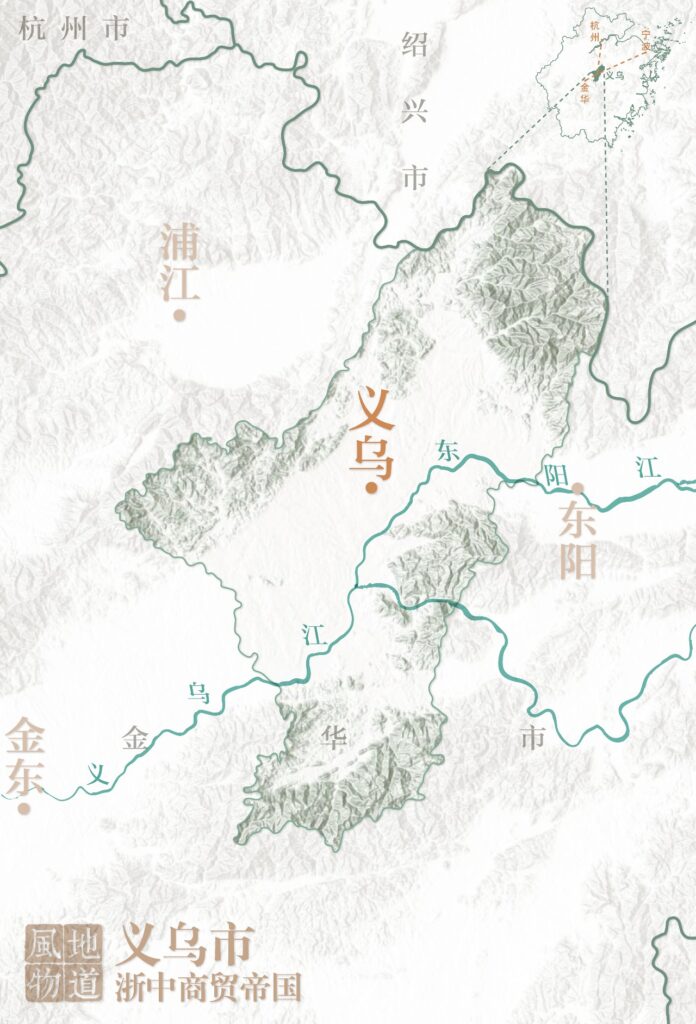
What is worse is that in Yiwu, over 90% of the land is middle and low mountains and hills, while the cultivated land is mostly sticky loess and red soil. The so-called “red gold mud” says the muddy when wet and porous when dry land in Yiwu. As it poor in water and fertilizer retention, it is extremely unfavorable to farming. Therefore, under the tremendous pressure of survival, “doing business” seemed to be the only way out for Yiwu people at that time.
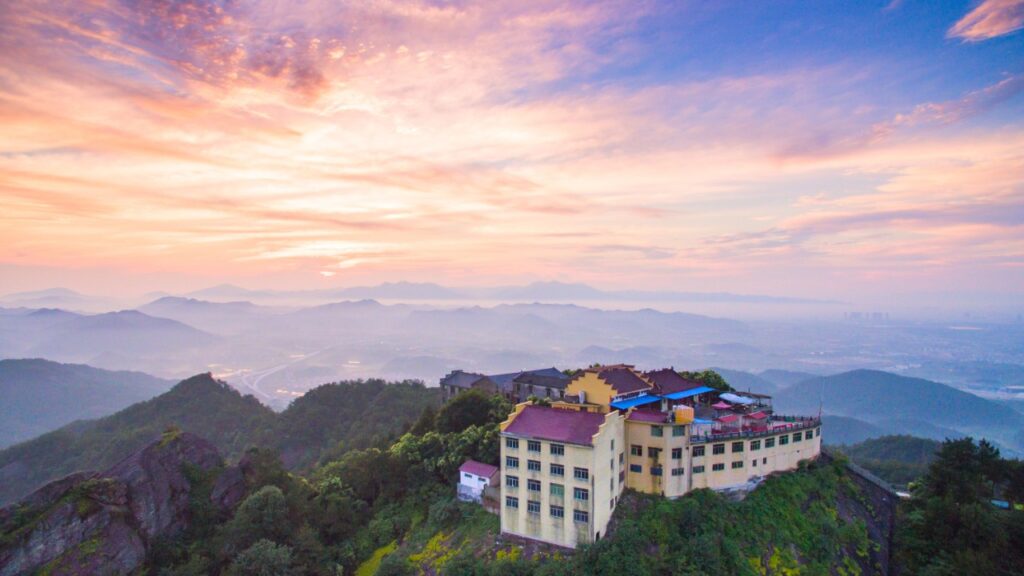
I have always thought that when destiny “suppresses” you, it may be just guiding you to another flourishing road. When the first Yiwu people picked up the load and waved their rattles, they came and went through mountains, countryside and streets, exchanging brown sugar cooked by themselves for chicken feather, duck feather and goose feather. By then, a strong commercial gene began to flow into Yiwu people’s blood.
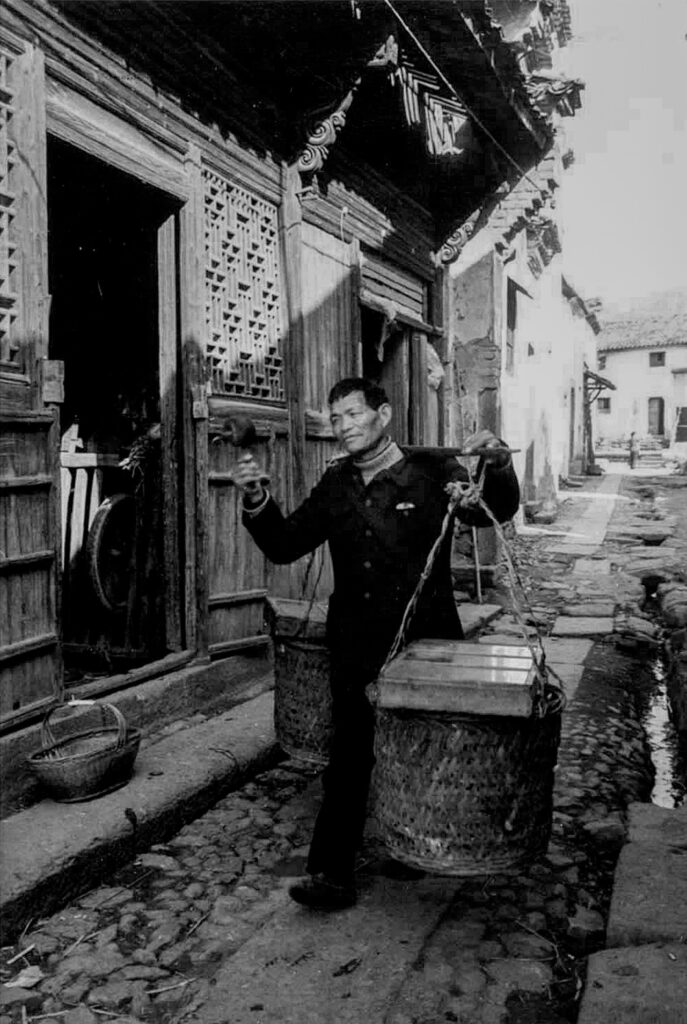
This kind of business model called “chicken feather for sugar” seems primitive and simple, but it contains a complete “industrial chain”—-brown sugar comes from a large number of sugarcane grown by the riverside, which needs more water than fertilizer and easy to grow under careful irrigation. The brown sugar made by the local people with their exquisite sugar making skills is very popular among all families and even becomes the sweet memory of a generation in their childhood.
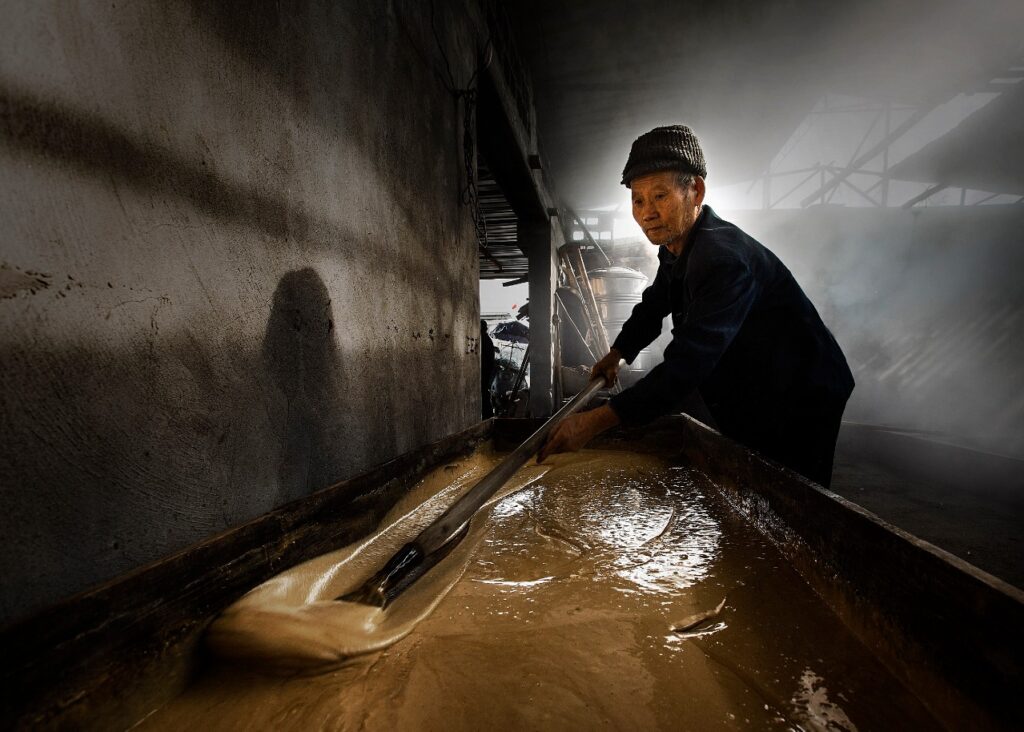
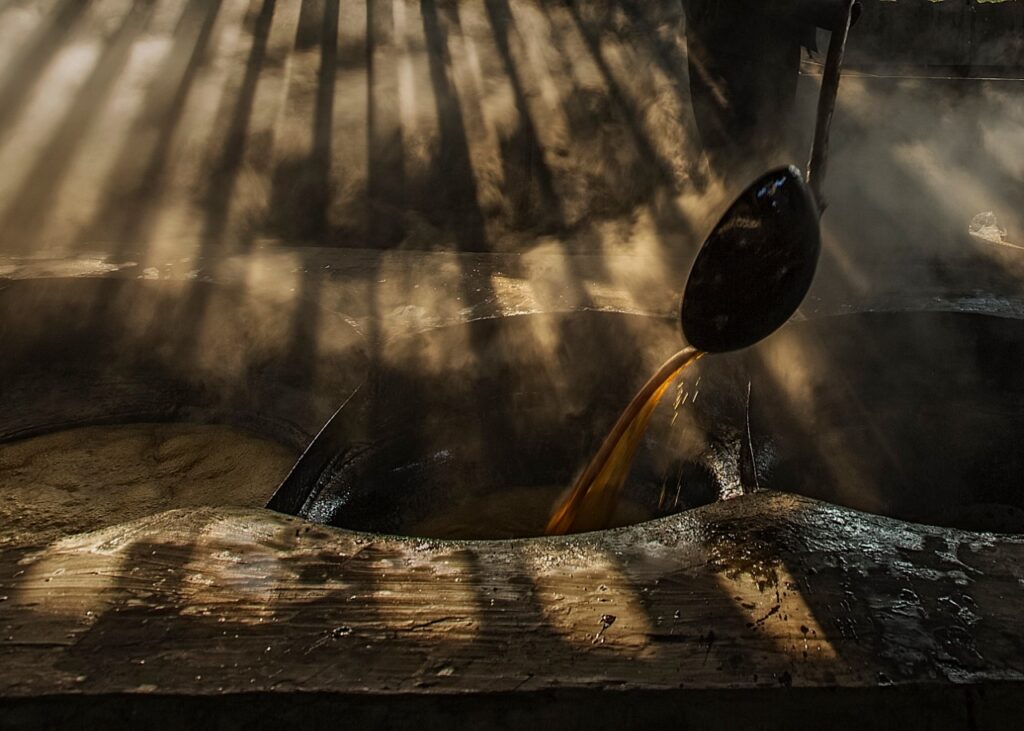
The exchanged poultry feathers were taken home by “sugar bearers” (another name of early Yiwu businessmen). And most of them were made into fertilizers for “seedling roots” with plant ash, human and animal waste, and it gradually solved the problem of infertility. The finer feathers are used to make feather dusters as a by-product of this “industry chain” for profit.
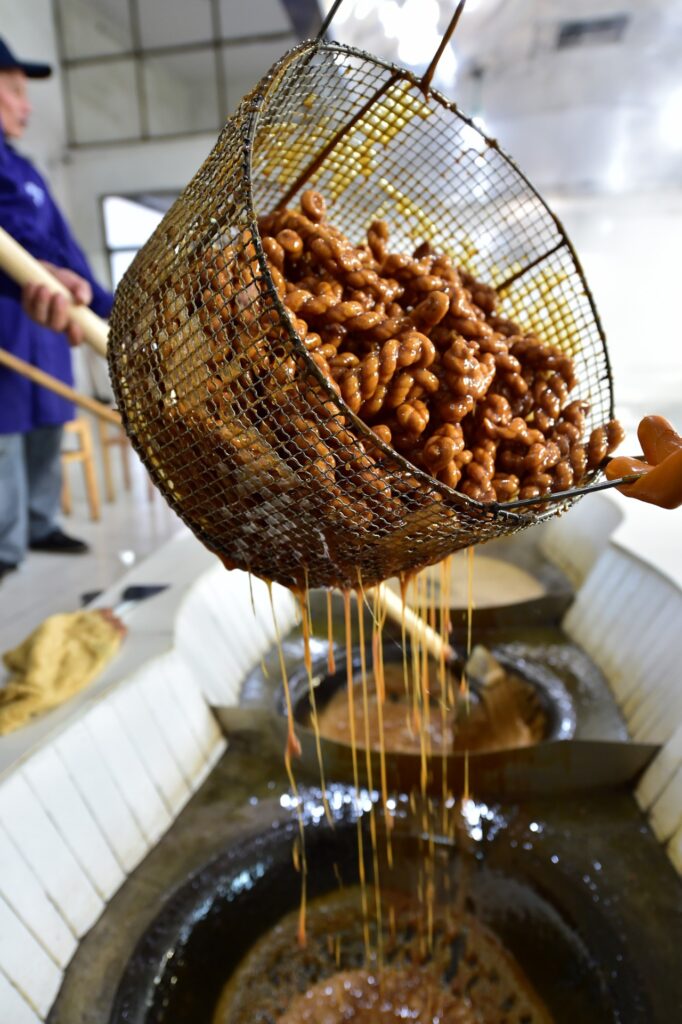
As the “sugar bearers” team expanded, Yiwu gradually formed a team with a clear division of labor and organizational discipline with a rattle as totem—-“The Sugar Gang“. Their business scope is no longer limited to chicken feathers and brown sugar. Instead, they have turned to small daily necessities that have been in short supply in the mountainous areas. Clarifying the “users’ needs”, an industry culture of making friends and benefit friends comes into being.
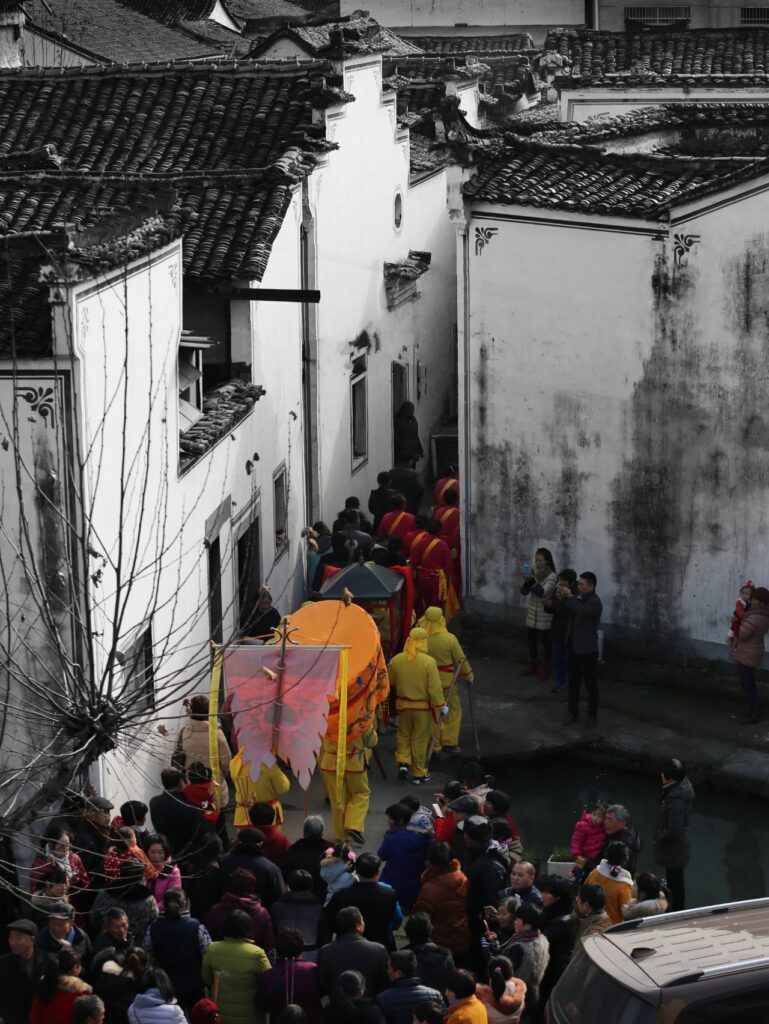
It is worth mentioning that, perhaps as they also face the dilemma of having less land and more people, or perhaps they also have the faith of “destining for business”, Yiwu people were full of respect for Huizhou merchants, who came along the way and left a strong mark in Yiwu. They brought salt, stationery, pawns and other industries, as well as advanced business ideas and Huizhou culture. Up to now, in the ancient Fotang streets of Yiwu, there are still a large number of Hui styled architectures, like horse-headed walls, beauties leans, emblem carvings, and “Four Water Returning to the Hall” patios.
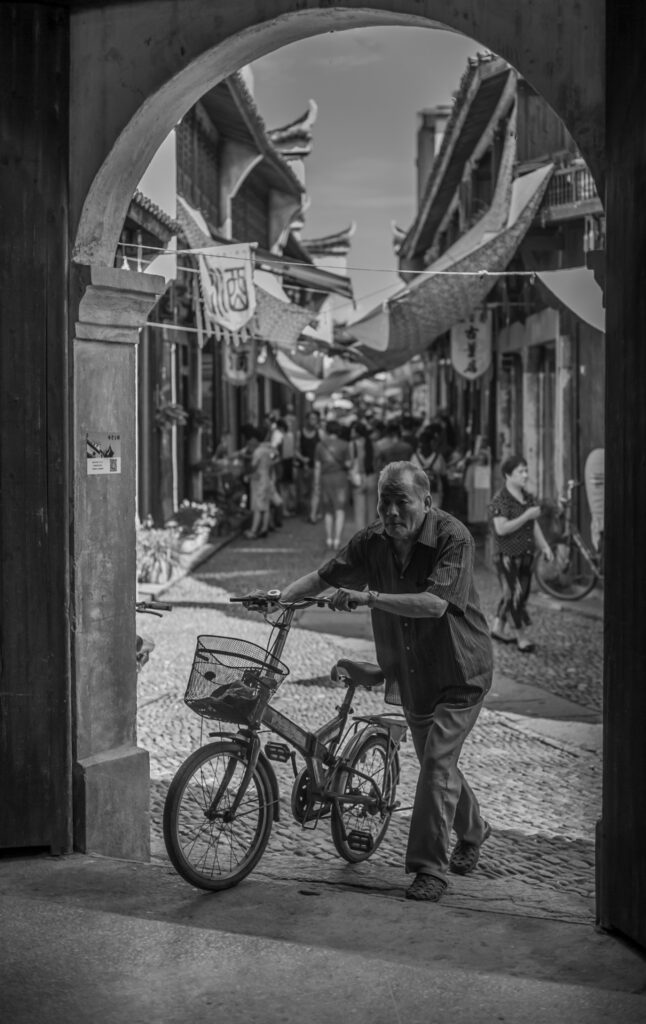
However, when Huizhou merchants had already become a historical legacy, Yiwu people inherited this business spirit and built a great city in central Zhejiang based on market.

The market is not built in one day, and the boss is not treated in one day
Yiwu people’s sense of business identity is first manifested in terms of titles. I have never seen people from any place who likes to call themselves “boss” and “boss lady“ like Yiwu people, and this even replaces “sir” and “madam” as everyday terms to call each other. Perhaps in their minds, everyone in the world has the possibility of becoming a business partner. Or as rumors in the field, one in ten of Yiwu people has stalls in the market.
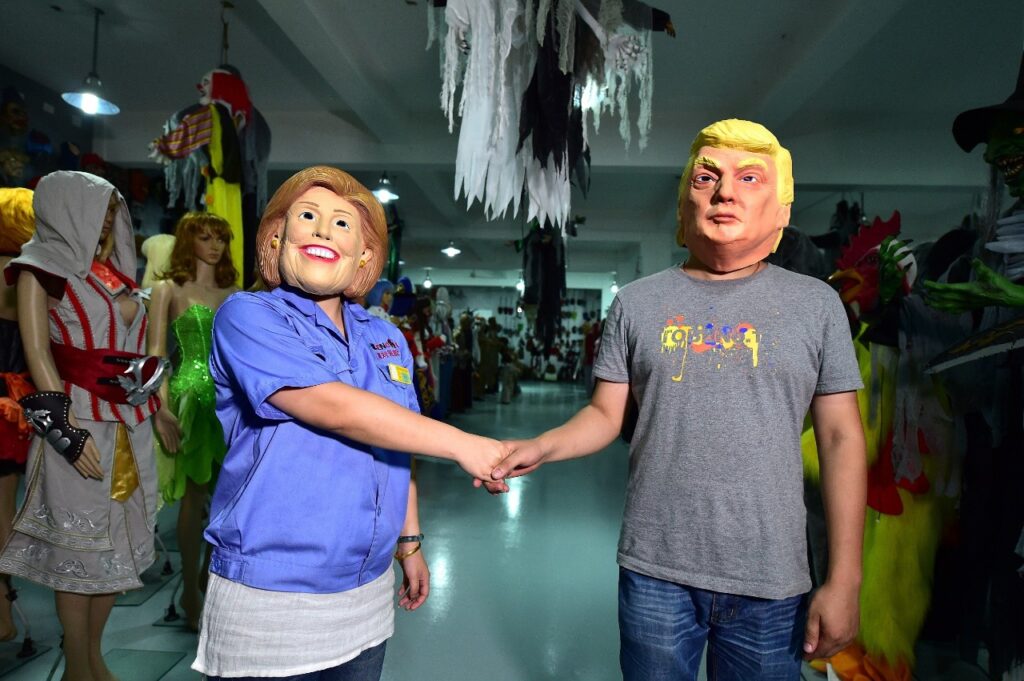
Most of bosses and boss ladies in Yiwu get trained while they were still doing business on the streets.
At the beginning, it is in Niansanli Town when the “sugar gangs” put down their loads and set up stalls in the downtown area as the local government specially issued them 7,000 copies of “Temporary Permits for exchanging feather with sugar“, which formed the original small rural market. Then after several twists and turns, under the current circumstances, Xie Gaohua, secretary of the county party committee took his job for guarantee and made every effort to open up the “small commodity market of Choucheng Town“ by a stinking ditch in Huqingmen. Since then, the first generation of small commodity market in Yiwu has emerged, and this is just the beginning of a business legend.
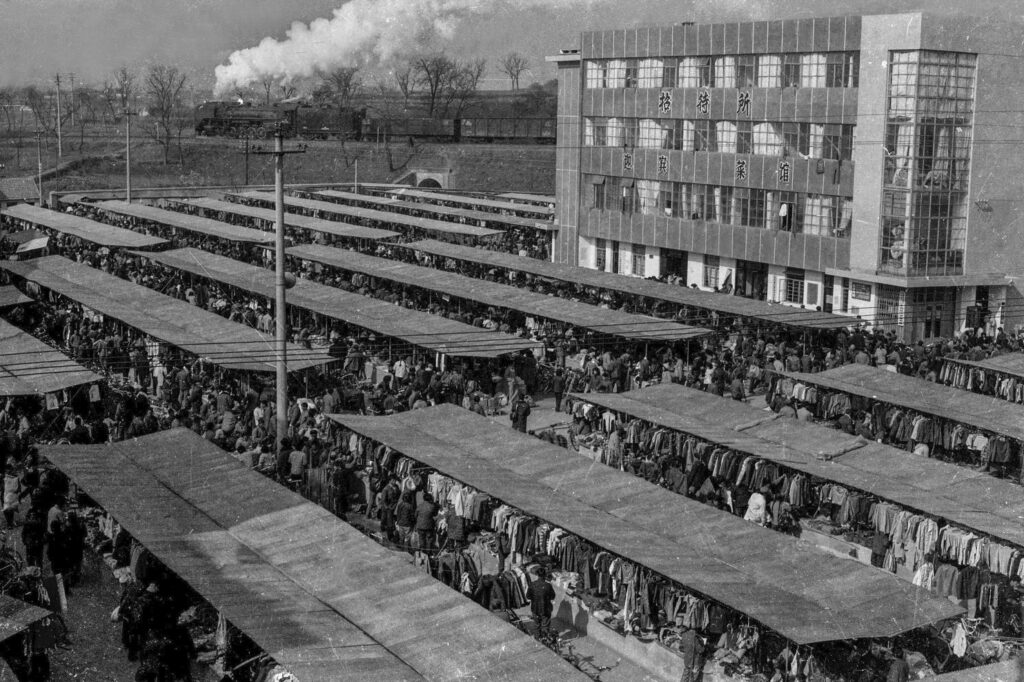
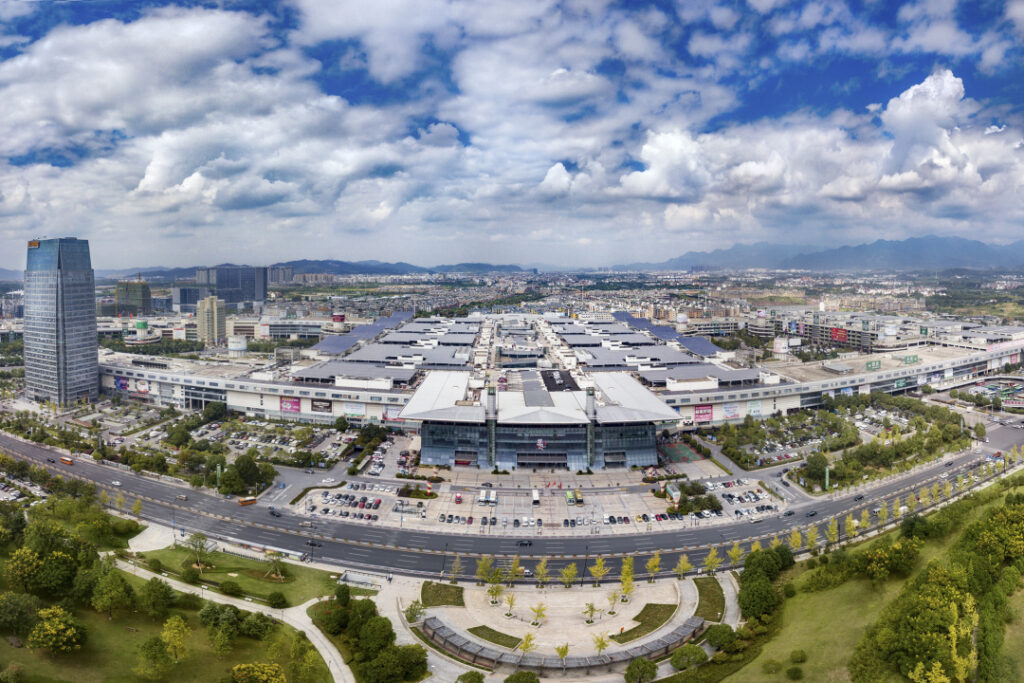
After the market was established, and Yiwu merchants seemed to take over the rattle in the hands of the “sugar gang” ancestors and pick up the loads again, walking out of the mountains that have blocked them for years—-to the north, Yiwu’s business has been able to spread to northernmost provinces; to the south, they have taken goods from Jiangxi Province and Fujian Province and headed straight to Guangdong, which was more open at the time.
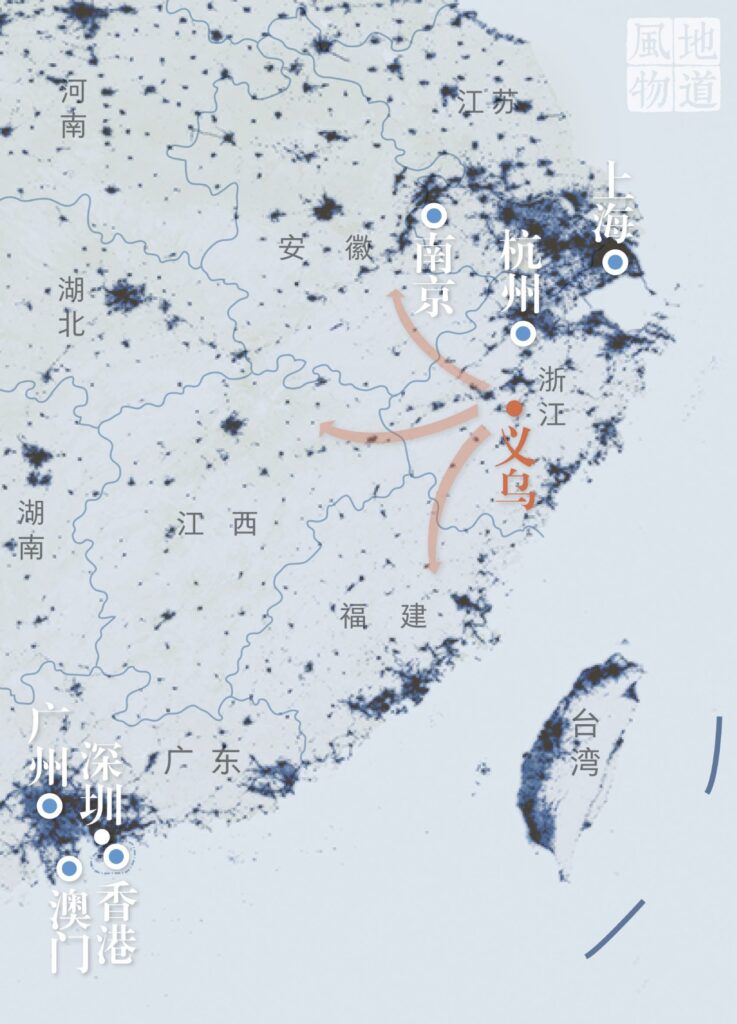
External evaluation of Zhejiang businessmen said that Wenzhou and Yiwu people are the best to bear hardship. After getting goods back from Guangdong, Yiwu bosses even took the goods to drill down the seats when there were no seats on the train. And even the market circulated the saying, “want to be the boss, sleep on the floor first.” Often, kids whose parents are doing business would have the experiences of writing homework on parents’ stalls and placing books on the loads piles.
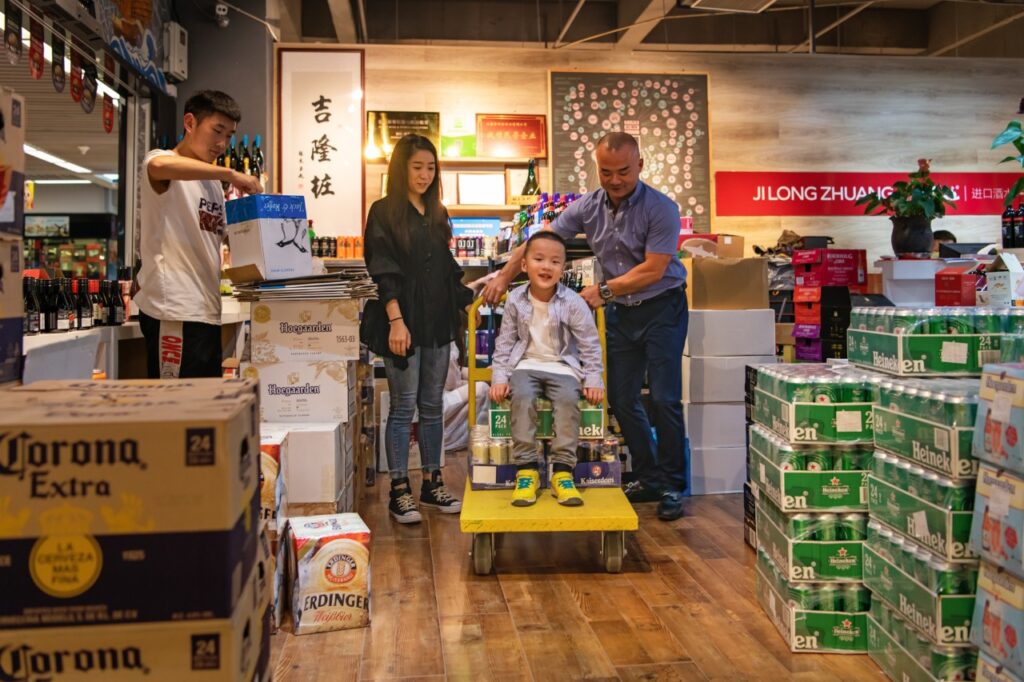
Under the influence of “historical process” and “self-struggle“, the three generations of Yiwu people have experienced a market evolving through 5 generations.
Till this day, the sixth-generation market cored on the establishment of the “Free Trade Zone” is ready to promote itself, with the intention of shifting from the export trade mode of domestic production and export to overseas markets in the past to the entrepot trade mode of “buy the world, sell the world”, and become the “middlemen” in the world.
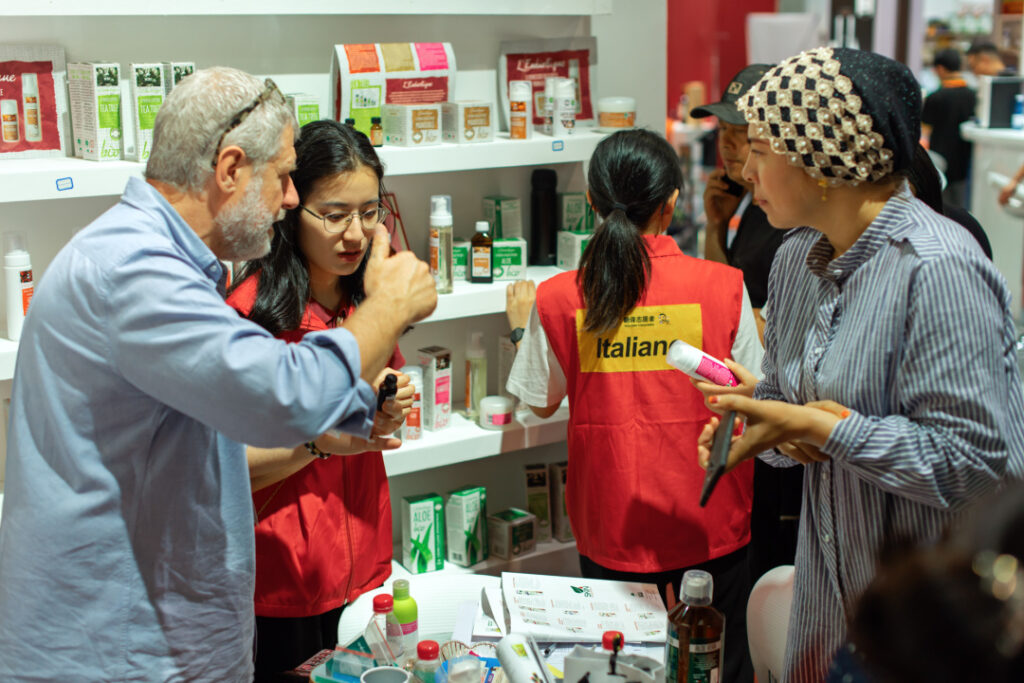
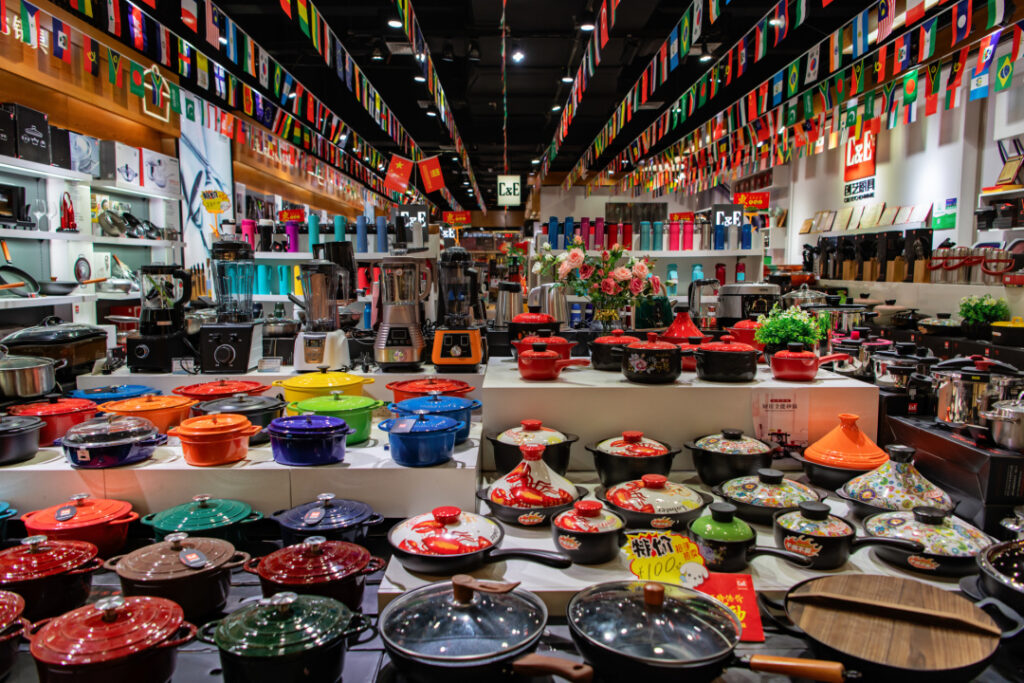
On the other hand, Yiwu’s e-commerce business has developed rapidly, with the express delivery business volume second only to Guangzhou in the first half of the year, becoming the main price war battlefields among major express delivery companies in this year’s “Double 11 shopping feast”, and forming business mode of “online sales” and “offline viewing”, which integrates with the market. So, will the physical stores of Yiwu market wither away under the impact of e-commerce? Perhaps just as the Yiwu people said:
“It’s like ordering takeaways, too. If you’ve seen what this restaurant looks like, customers might feel more at ease.”
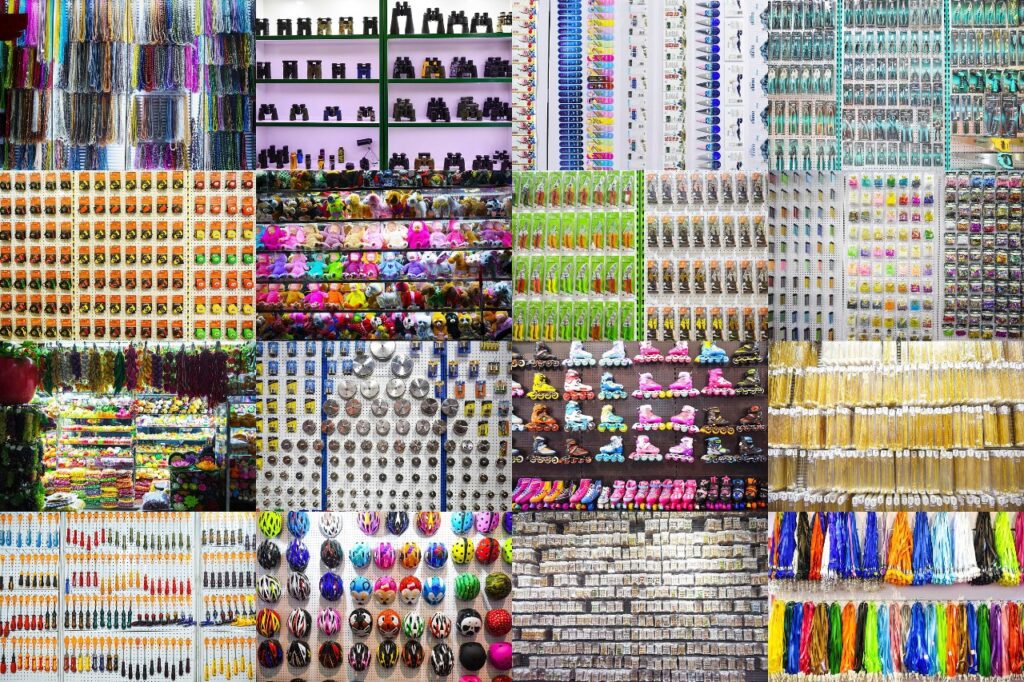
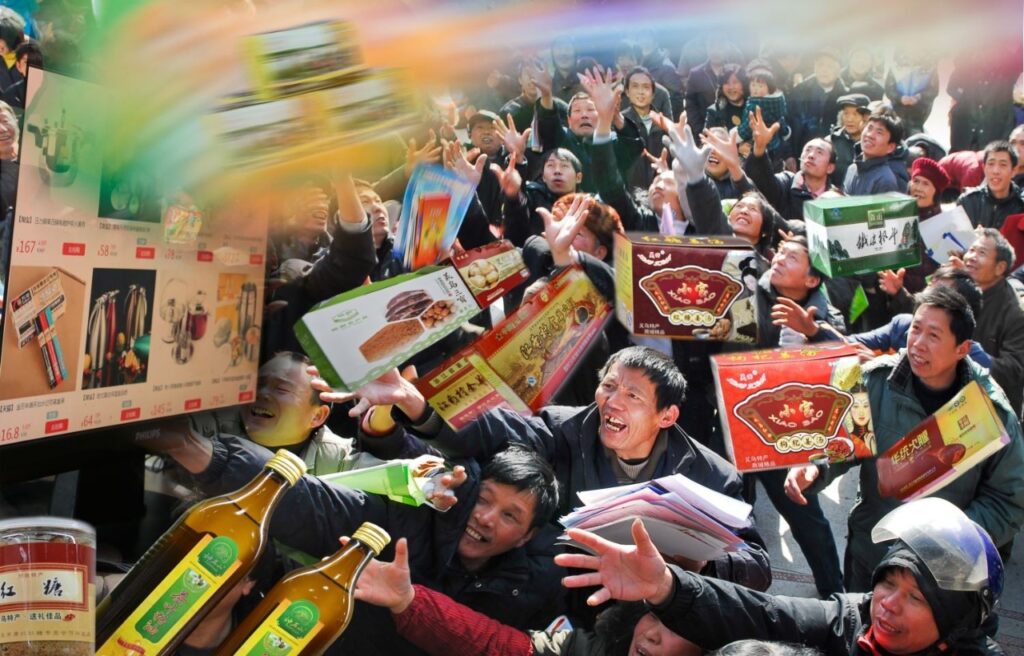

The art of barging, honesty and tolerance
Foreigners who come to Yiwu always feel that Yiwu people have two “shortcomings”: the first is too “stingy”, and the second is “exclusive”.
The former is mainly reflected in the ability of Yiwu merchants to bargain. Shopping in Yiwu market is like playing a tug-of-war, where the battlefield situation is unpredictable—-sometimes you need to be loud and powerful, and ask for 50% off at the first time; while sometimes you need to lower down the voice and negotiate with operators. Try to reach a perfect balance between advance and retreat, and you would get a satisfied price.
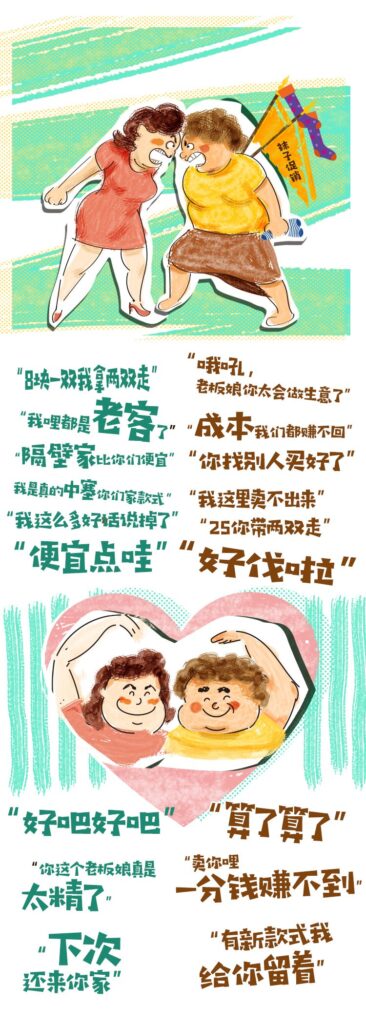
However, when two Yiwu businessmen negotiate with each other, no matter how fierce the barging process is, it seems that in the end, they can always agree on a price that satisfies both sides. The reason is that before the start of the business, everyone had a steelyard in their minds. After several rounds of trials, they have seen each other clearly, so they can quickly reach a tacit understanding and achieve a win-win situation.
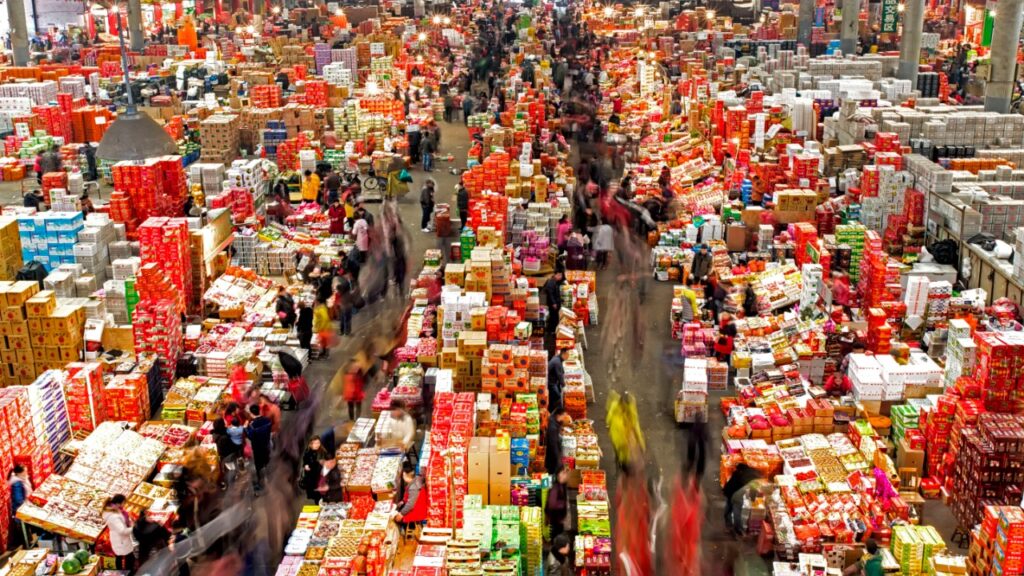
This attitude of “barging” stems from the poverty-stricken years of the older generation, when it is necessary to support the family with every single cent for living. People stick to this attitude not only when they do business, but also in their daily life, which seems to be stingy.
However, in terms of their children’s education, Yiwu people showed their grandeur—-leaving the most beautiful places in the city for the best schools in the city. Yiwu government spared no expense to cut the mountain and repair road, and built the No.1 Yiwu High school with Qingyan Mountain and Baiyan Lake on its back. Till now, school students often missed the wonderful scenery of their high school, even after they admitted to college.
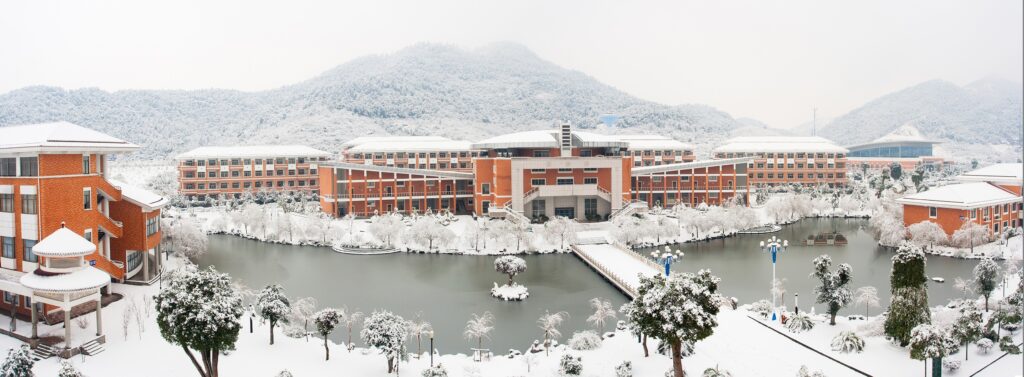
The seemingly “exclusive” stems from the unity of Yiwu people since ancient times. During the Ming Dynasty, feeling that Yiwu people could unite hundreds of thousands of heroes together to protect the mines, the famous general Qi Jiguang formed the famous “Qi Jiajun”. At the emergence of Yiwu market, Yiwu people often pull together to procurement and whoever found a good source of goods have to to make a fortune together with all people. Yiwu people have always been honest and tolerant. This small city with a population of only 800,000 more receives millions of foreign builders every year, including more than 15,000 foreigners. The proportion of foreign population is not inferior to first-tier cities, like Beijing, Shanghai, and Guangzhou. These overseas visitors are almost businessmen who came here because of the increasing international influence of the Yiwu market. Most of them fell in love with this city full of opportunities and regarded it as their “second hometown“.
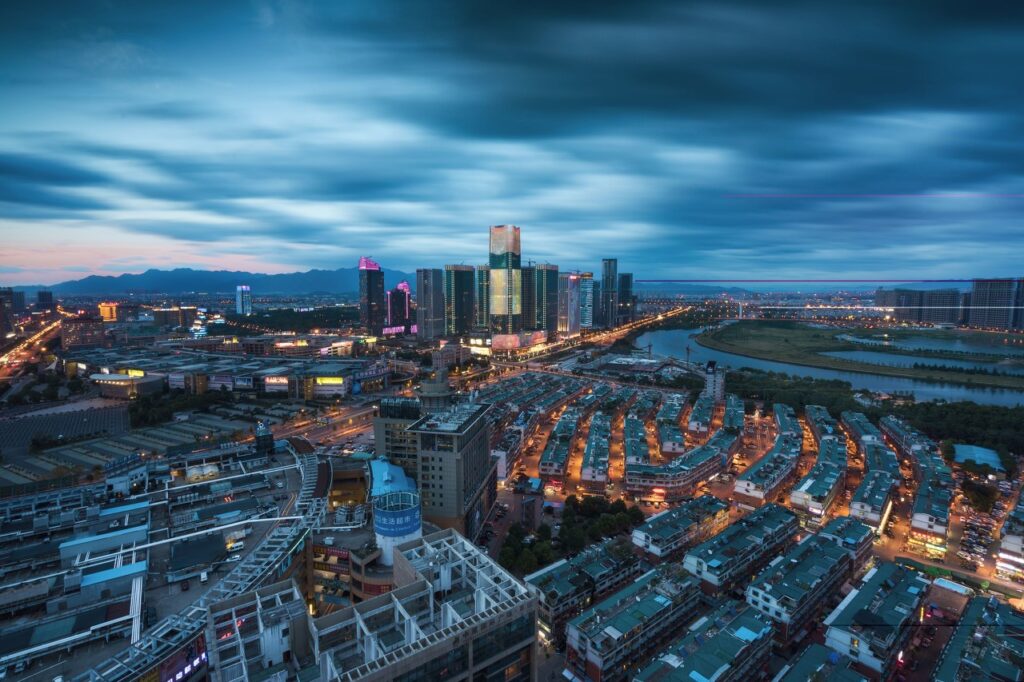
A large number of foreign cultures make up Yiwu’s unique life. At the bright Binwang Night Market, you can see Dubai people in white robes speaking Yiwu dialect with Arabic accent barging with the stall owners. Their mature skills and sharp eyes are not inferior to the local boss. In the “Exotic Street”, you can taste Turkish barbecue, Indian flying cakes, Thai pineapple rice … and by your side, there may be an African holding a Donghe meatloaf that just baked on the street.
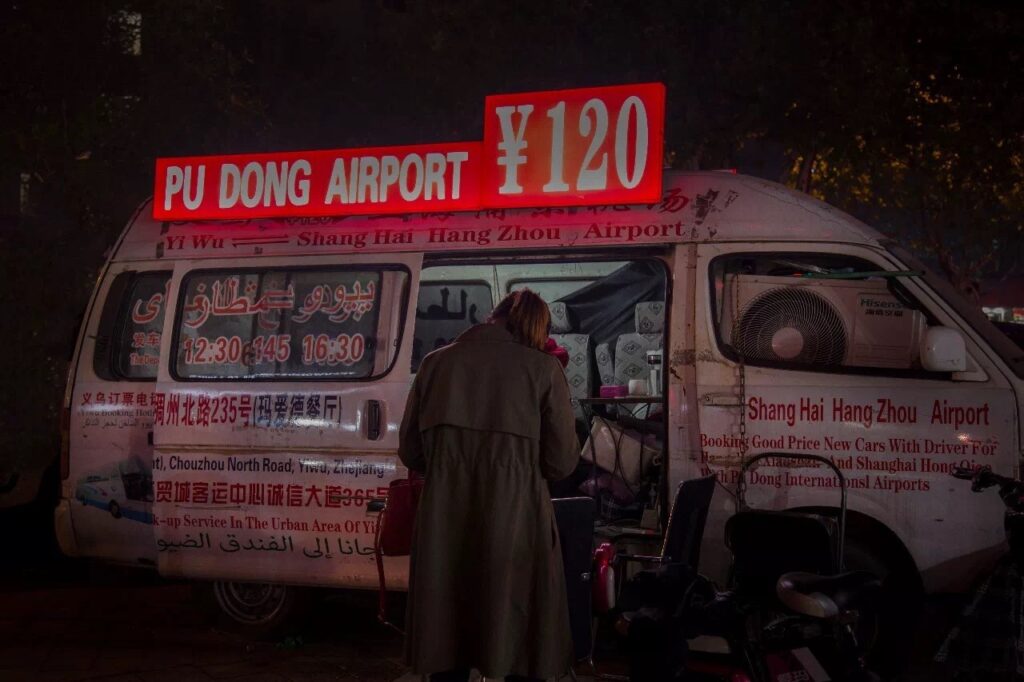
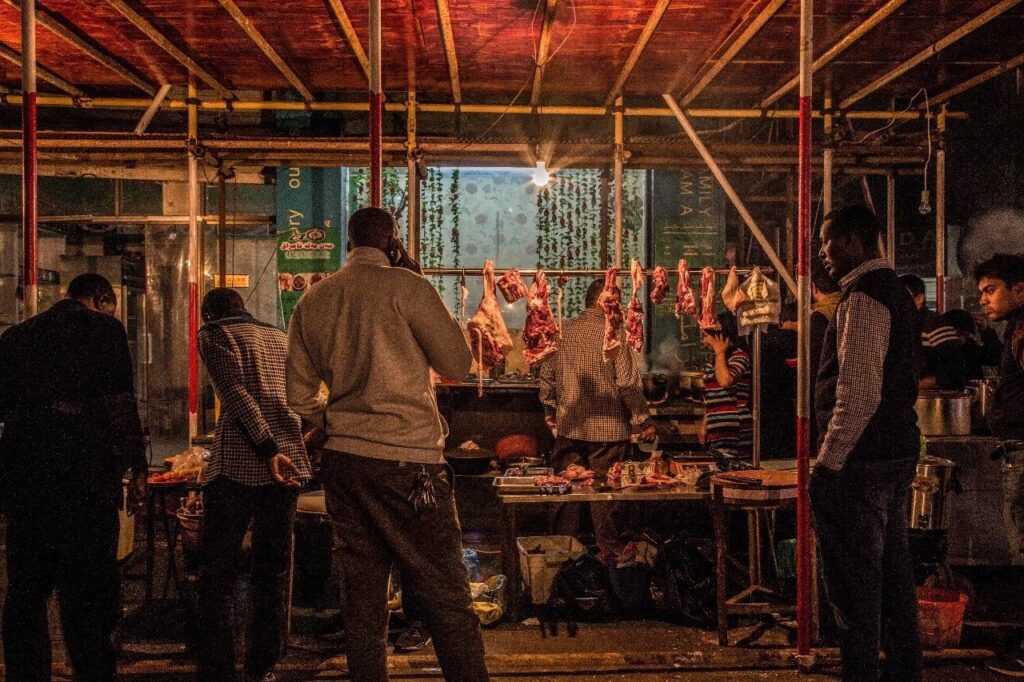
On the Spring Festival each year, with the return of a large number of migrant workers, Yiwu has become an “empty city”. After a year of busyness and exhaustion, the usually bustling markets and streets are quite quiet and empty. At this time, most Yiwu people would choose to go back countryside to celebrate the New Year. On the New Years Eve, the whole family sat around the old-fashioned table and talked. In addition to the chicken, duck, and fish, there had to be big steamed bread with the word “Fu” printed on it, along with “black meat” (braised pork) and “Lu bamboo shoots” (sliced bamboo shoots cut into long strips). These are said to be a decent Chinese New Year dinner.
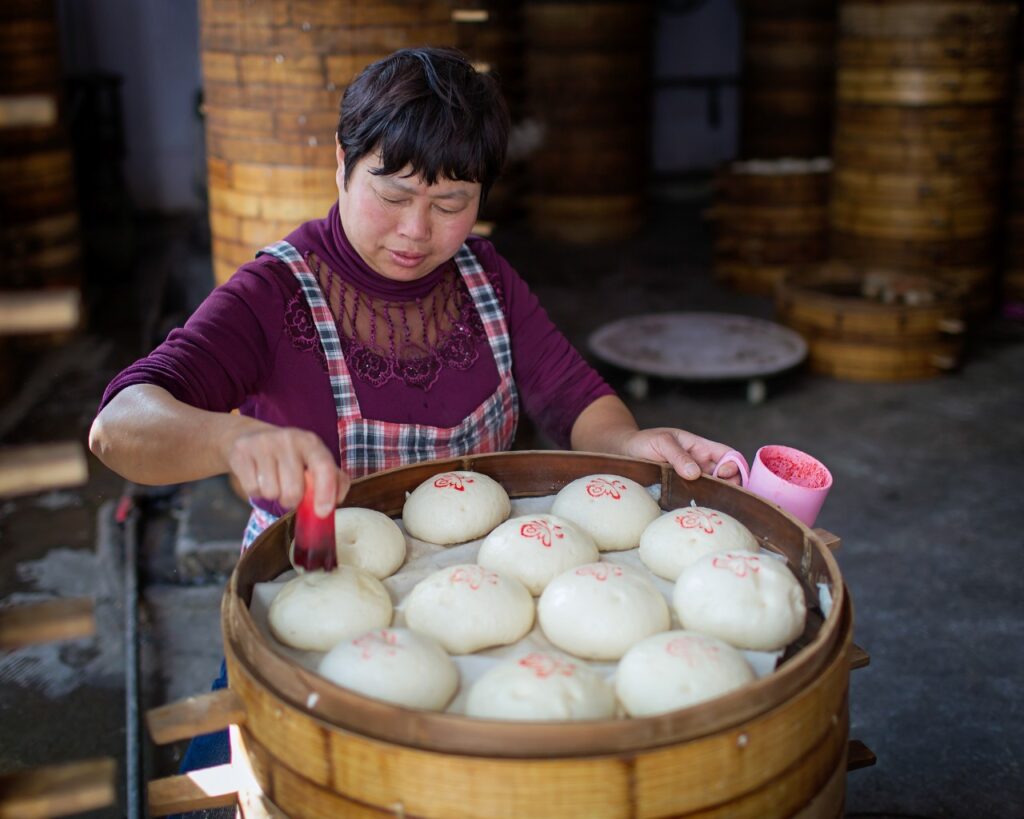
Until Dragon Dance on Lantern Festival, Yiwu people gradually returned to their posts one after another. Those little boys and girls in the cotton-wadded jackets watching the Spring Festival Gala in the countryside have become the spirited bosses and boss ladies again, and continue their commercial journey along with the city.
